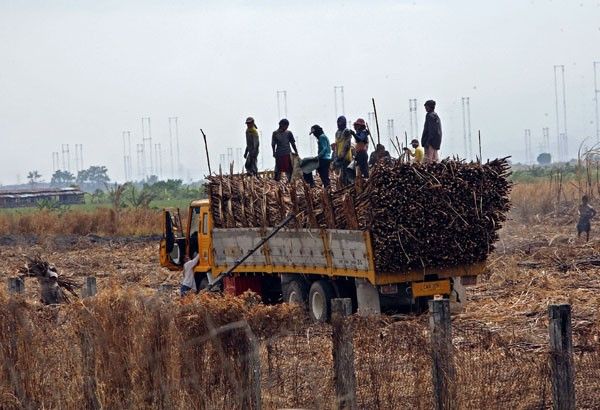Victorias Milling set to complete biomass plant in September

VICTORIAS CITY, Philippines — Listed sugar miller Victorias Milling Company Inc. (VMC) is set to complete a P2-billion 40-megawatt cogeneration biomass power plant to run mainly on sugar cane residue by September.
"We will be able to export to the grid about 25 MW while the remaining 15 MW will be for our own use. We are also applying this under FIT (feed-in-tariff)," VMC president and chief operating officer Eduardo Concepcion said.
The plant, which started construction last year, will be run mainly on bagasse, a byproduct of sugar canes.
Once it qualifies under FIT, the power plant will get priority dispatch in the spot market with a fixed price of power at P6.63 per kilowatt hour for at least 20 years.
"If things go right, we can construct phase 2. Same capacity but the power that will be exported will be just 20 MW since part of the power from phase 2 will electrify the turbines to convert them to use electric power so that steam from the sugar mill will be concentrated on the power plant to maximize power generation we will use to run the mill," Concepcion explained.
He added that other firms planning to construct their own biomass power plant in the region are talking to VMC for a supply agreement of bagasse.
"The setup could be somehow difficult since gathering sugar cane trash in the field is challenging. Areas in the facility are not totally planed, it will be difficult during the rainy season especially in bringing in needed equipment. In Negros, the Zabaleta group is planning a biomass plant," the VMC chief said.
Last year, Bronzeoak Philippines Inc., led by the Zabaleta group, said the International Finance Corp. already approved funding of up to $161 million for three biomass plants.
Bioethanol and potable alcohol
Apart from biomass power projects, the biggest local producer of sugar is also upgrading its distillery to produce bioethanol alongside potable alcohol.
"Under the law, bioethanol needs to be sourced from local produce so the demand and the price is high compared to potable alcohol that could be imported," VMC chief manufacturing officer Linley Retirado said.
The upgrade will likely cost P50 million to P80 million, improving the distillery’s current capacity of 30,000 liters to 50,000 liters per day with a projected annual production that can reach up to 8.3 million liters.
VMC said majority of the investment for the upgrade will be spent on the installation of a dehydrator to enable the conversion of potable alcohol to bioethanol.
Molasses, another byproduct of sugar cane milling, is a raw material for bioethanol and feedstock for alcohol production.
The Biofuels Act of 2006 has mandated a 10-percent bioethanol blend in gasoline but at present, the country still enforces two-percent blend due to lack of supply.
VMC is engaged in integrated raw and refined sugar manufacturing with plant facilities in Negros Occidental. It operates mill and refinery facilities for sugar and allied products, and engineering services.
Its operating subsidiaries include Victorias Food Corp., Victorias Agricultural Land Corp., Canetown Development Corp., and Victorias Golf and Country Club Inc.
- Latest
- Trending




























